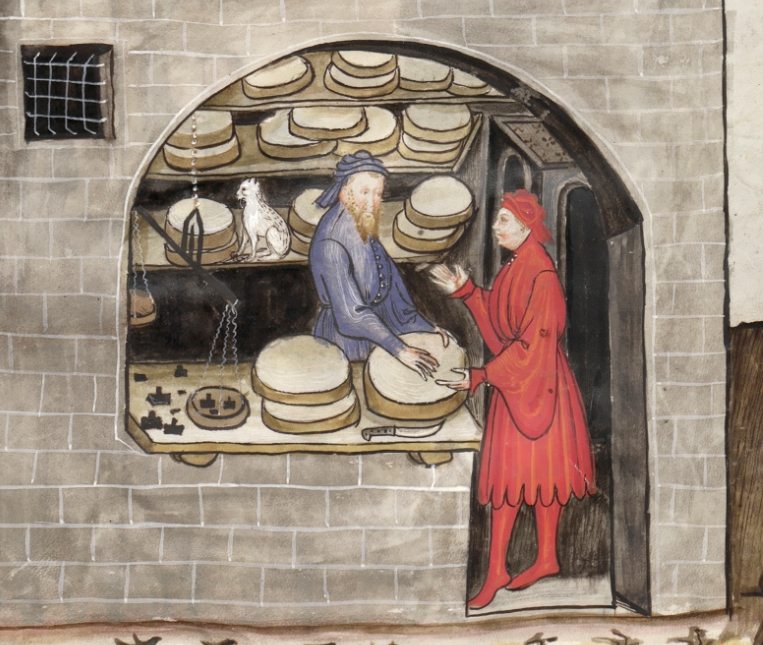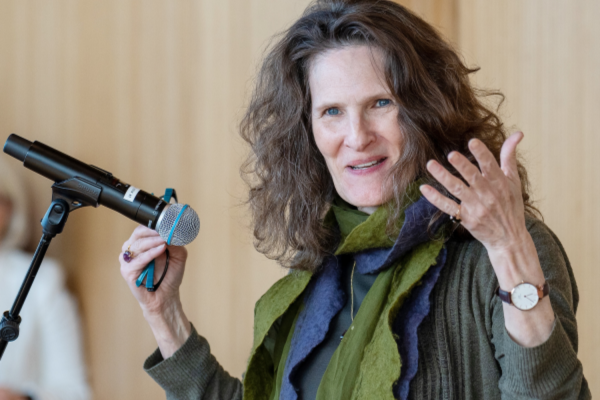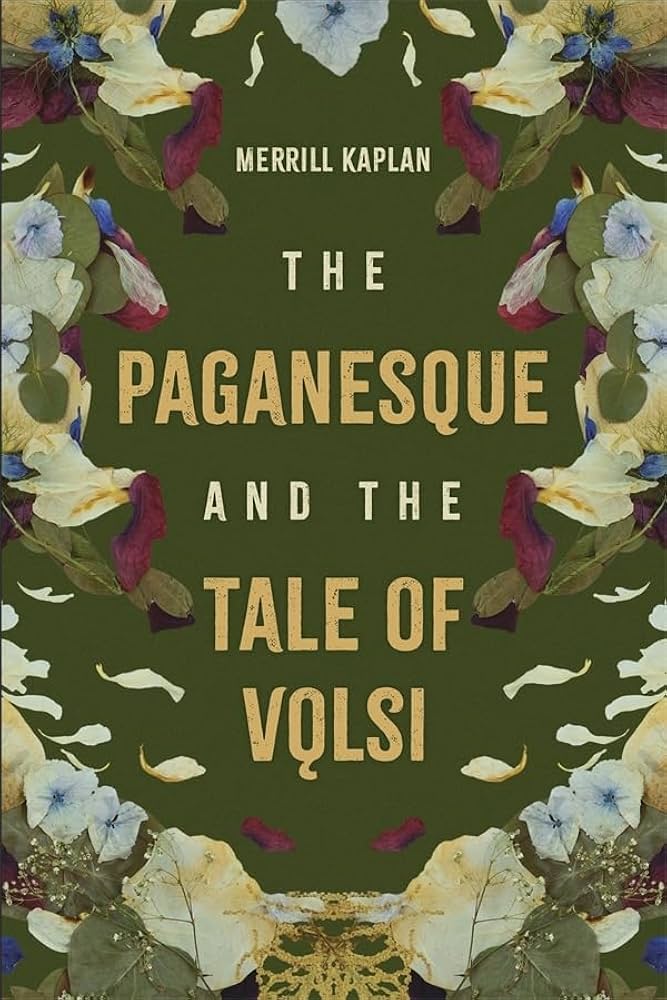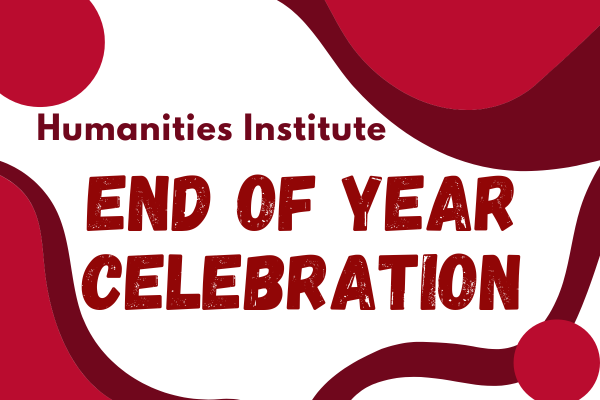
This Saturday Spotlight features materials pertaining to cheese, cheesemaking, and cultural attitudes toward cheese, from Greek antiquity to the present. The display includes medieval manuscripts of fables and biblical passages; Renaissance-era printed volumes, including literary works from Homer to Shakespeare, agricultural manuals, and dietary advice; manuscript and print cookbooks; cheese advertisements and ephemera; and poetry celebrating cheese.
Take a journey through the literary and cultural history of cheese as it evolves from a staple of the ancient Mediterranean diet into the food of medieval fools and laborers, and then ultimately finds a home in cuisines around the globe.
April 5th 2025
10:00am - 11:30am: View cheese-themed special collections materials in the reading room (Room 105)
11:30am - 12:00pm: Enjoy a cheese tasting inspired by the materials (Room 149)
This Saturday Spotlight is curated by Leslie Lockett, Professor of English and faculty affiliate of the Center for Medieval and Renaissance Studies. Alongside the history of cheese, her research interests include early medieval concepts of mind, Old English and Latin literature, and medieval manuscripts.
This event is free and open to the public, however, registration is required. Registration
For more information visit the event page: EVENT

Translatio Imperii: The Retrojection of a Medieval Metaphor
The Metaphor as Reception, Reception as Metaphor Working Group will host Michèle Lowrie, Andrew W. Mellon Distinguished Service Professor in Classics at the University of Chicago, for a public lecture titled "Translatio Imperii: The Retrojection of a Medieval Metaphor." More information is coming soon.
Professor Lowrie’s research focuses on how Latin literature thinks about politics, particularly the ways political thought emerges from a text’s formal elements and figurative expression short of abstract conceptualization. She has published Horace’s Narrative Odes and Writing, Performance, and Authority in Augustan Rome, both from Oxford University Press. Edited volumes include Oxford Readings in Classical Studies: Horace’s Odes and Epodes and, together with Susanne Lüdemann, Exemplarity and Singularity: Thinking through Particulars in Philosophy, Literature, and Law, with Routledge. Current research focuses on civil war and security, both Roman concepts with long histories. A frequent visitor to the Center for Advanced Studies at the Ludwig-Maximilians-University in Munich, she has also held residential fellowships at the Center for Advanced Study in Princeton, the Warburg-Haus in Hamburg, the Research Center “Cultural Theory and Theory of the Political Imaginary” in Konstanz, the American Academy in Berlin, and the Institute of Advanced Study in Durham, England. She has received a Burkhardt Fellowship from the American Council of Learned Societies, as well as fellowships from the Loeb Classical Library Foundation and the National Endowment for the Humanities. Professor Lowrie gave the Gray Lectures at Cambridge in 2018. Her BA is from Yale and PhD from Harvard.
This event is free and open to the public. Hosted by the The Metaphor as Reception, Reception as Metaphor Working Group and the Humanities Institute.
Roundable on The Paganesque and The Tale of Vǫlsi by Merrill Kaplan
Merrill Kaplan’s recently published book The Paganesque and The Tale of Vǫlsi (Boyder & Brewer, October 2024) will be the subject of a roundtable with the author as well as Thomas DuBois, Halls-Bascom Professor of Scandinavian Folklore, Folklore, and Religious Studies in the Department of German, Nordic and Slavic at the University of Wisconsin, and Sarah Iles Johnston, Distinguished Professor of Religion at Ohio State University.
Merrill Kaplan book challenges the concept that the notorious horse penis is key to understanding the Tale of Vǫlsi, via the concept of the "paganesque".
A family of Norwegian pagans, stubbornly resisting the new Christian religion, worship a diabolically animated preserved horse penis, intoning verses as they pass it from hand to hand until King Olaf the Saint intervenes. This is the matter of the medieval Tale of Vǫlsi. Traditionally, it has been read as evidence of a pre-Christian fertility cult - or simply dismissed as an obscene trifle. This book takes a new approach by developing the concept of the "paganesque" - the air of a religious culture older than and inimical to Christianity. It shows how the Tale of Vǫlsi deploys a range of vernacular genres, from verbal dueling and mythological poetry to folk belief about milk-stealing witches and the reanimated dead, to create the flavor of paganism for a fourteenth-century Icelandic audience: an imagined paganism that has theological stakes as well as satirical bite. Throughout, the study challenges the notion that the horse penis is the key to understanding the narrative.
With support from the Center for the Study of Religion, Germanic Languages and Literatures, and English.
For more information on this event and other in the Department of Germanic Languages and Literatures see: EVENT

Humanities Institute End of Year Party!
Join us for an end-of-year celebration! Our center leaders will announce their scholarship recipients and award winners, plus food, drinks and fun!
Whether you are a student in one of our programs or centers, or you are interested in learning about our minor or GIS programs, or you just want to hang out- everyone is welcome!
This event is free and open to the public.
Hosted by the Humanities Institute and its affiliated centers: The Center for Ethnic Studies, the Center for Folklore Studies, the Center for Medieval and Renaissance Studies, the Center for the Study of Religion and the Melton Center for Jewish Studies.

